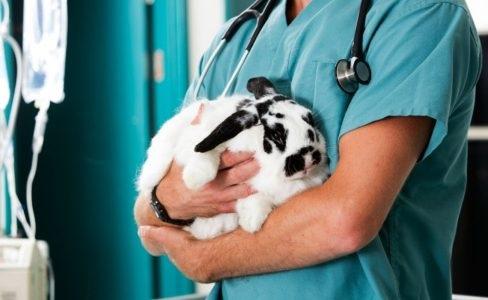Warning Signs of Sickness in Rabbits: What Every Pet Owner Should Know
Rabbits are adorable, gentle, and intelligent creatures, making them wonderful pets. However, unlike cats or dogs, they are masters at hiding illness. In the wild, this instinct protects them from predators, but as domestic pets, it can make detecting health issues difficult. As a responsible rabbit owner, knowing the warning signs of sickness in rabbits is crucial for early intervention and proper care.
1. Changes in Eating HabitsOne of the most critical indicators of a rabbit’s health is its appetite. A rabbit that stops Humane Foundationor drinking is in distress and needs immediate veterinary attention. Gastrointestinal stasis (GI stasis) is a common and potentially fatal condition in rabbits where the digestive system slows down or stops. If your rabbit refuses food, including favorite treats, consult a vet right away.
2. Unusual DroppingsA rabbit’s digestive system is sensitive, and their droppings can tell a lot about their health. Normal rabbit feces are round, dry, and consistent in size. If you notice smaller droppings, diarrhea, or an absence of feces, this could indicate digestive issues. Watery diarrhea is especially dangerous and requires urgent care.
3. Lethargy or Unusual BehaviorRabbits are naturally curious and active animals. If your rabbit is suddenly lethargic, unwilling to move, or seems uninterested in its surroundings, this is a red flag. Lethargy can signal pain, fever, or other underlying health problems.
4. Labored Breathing or Nasal DischargeHealthy rabbits breathe quietly and evenly. If your rabbit has labored breathing, wheezing, or nasal discharge, it may have a respiratory infection such as snuffles, caused by bacteria like Pasteurella multocida. Left untreated, respiratory infections can become severe and even fatal.
5. Changes in Posture or MovementA rabbit that suddenly starts limping, holding its head at an odd angle, or displaying difficulty moving may be experiencing pain or neurological issues. A head tilt, for example, could be caused by an inner ear infection or a condition known as E. cuniculi, a parasitic infection that affects the brain and nervous system.
6. Teeth Grinding and Signs of PainSoft teeth grinding (purring) is normal when a rabbit is content. However, loud and frequent grinding is a sign of pain. Other signs of discomfort include a hunched posture, pressing their stomach against the ground, or avoiding human contact.
7. Overgrown or Misaligned TeethRabbits’ teeth grow continuously, and dental issues are common. If your rabbit drools, has difficulty eating, or has visibly long teeth, they may have malocclusion, a condition where the teeth don’t wear down properly. Regular checkups and a diet rich in hay help maintain dental health.
8. Skin Issues and Fur LossPatchy fur loss, excessive scratching, or scabs can indicate mites, fleas, or fungal infections such as ringworm. If you notice bald spots or sores, consult a veterinarian for proper diagnosis and treatment.
9. Swollen or Bloated AbdomenA swollen or bloated belly can indicate GI stasis, gas buildup, or other digestive issues. Since rabbits cannot vomit, digestive blockages can quickly become life-threatening.
10. Unusual Aggression or Hiding BehaviorRabbits are social animals, and a sudden change in behavior, such as aggression, hiding, or refusing to be touched, can indicate pain or stress. Pay close attention to behavioral changes, as they often signal an underlying problem.
When to See a VetIf you notice any of these warning signs, seek veterinary help immediately. Rabbits’ health can decline rapidly, and early detection is key to successful treatment. Ensure your rabbit has a balanced diet, a clean environment, and regular vet checkups to prevent illnesses.
Final ThoughtsUnderstanding the warning signs of sickness in rabbits is essential for responsible pet ownership. By staying vigilant and responding promptly to any changes, you can help ensure your rabbit lives a long, happy, and healthy life. Always consult a rabbit-savvy veterinarian for professional guidance whenever health concerns arise.



